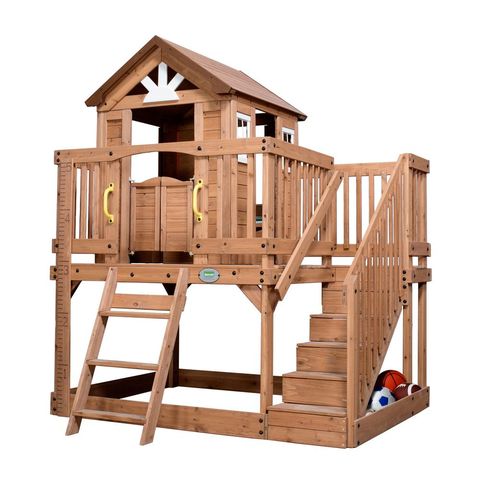Introduction: Play houses have been a timeless favorite among children, and their significance goes beyond simple entertainment. These miniature abodes offer a plethora of benefits, supporting children’s social and emotional development. In this blog, we’ll explore the power of play houses in fostering social skills, emotional intelligence, and imaginative play, making them an invaluable tool for children’s holistic growth.
- Role-Playing and Empathy: Play houses encourage role-playing, allowing children to take on different roles and perspectives, fostering empathy and understanding towards others.
- Emotional Expression: Children use play houses as a safe space to act out emotions and experiences, promoting emotional expression and self-awareness.
- Communication and Cooperation: When engaging in pretend play within the play house, children practice communication and cooperation skills, essential for successful interpersonal relationships.
- Problem-Solving and Decision Making: Play houses present various scenarios for children to navigate, honing their problem-solving and decision-making abilities.
- Creativity and Imagination: Through imaginative play, children create stories and scenarios, developing their creativity and expanding their imaginations.
Conclusion: Play houses hold the power to nurture social and emotional development in children through role-playing and empathy, emotional expression, communication and cooperation, problem-solving and decision-making, and fostering creativity and imagination. As parents and educators encourage play house activities, they create an enriching environment where children can explore and develop crucial social and emotional skills, preparing them for a lifetime of healthy relationships and emotional intelligence.








